When a series of bombs went off at the Brussels airport and in a subway station yesterday, killing 31 people and injuring more than 200, the reaction of the US press was immediate and overwhelming. Every major news outlet turned its website over to coverage of the suicide attacks, often accompanied by live tickers and infographics. “Brussels Attacks Shake European Security” reads the banner headline on today’s New York Times’ front page (3/23/16); the Washington Post (3/22/16) worried that the bombings “made clear that European capitals remain perilously vulnerable despite attempts to dismantle the militant network that perpetrated the worst terrorist attack in Paris in generations last November.”
It was a curious statement, given that just nine days earlier, another European nation’s capital had been the site of a remarkably similar suicide bombing. On March 13, a car bomb went off in Ankara, Turkey, killing 34 people and injuring 125. As in Brussels, the Ankara bombing, carried out by a Kurdish group opposed to Turkey’s military actions in Kurdish regions of Syria, targeted a transit hub—there a heavily trafficked bus stop—and the victims were likewise unsuspecting civilians going about their lives, including the father of international soccer star Umut Bulut (Guardian, 3/14/16), who was on his way back from one of his son’s matches.
If terrorists had set out to conduct a controlled experiment on how the US media covers mass deaths overseas, they couldn’t have planned it any better. The Ankara bombing was mostly relegated to smaller stories buried in the foreign section: The New York Times (3/14/16) ran a 777-word story on page 6, noting that the attack “raised questions about the Turkish government’s ability to protect its citizens”; the Washington Post (3/14/16) ran an even shorter story reporting that “initial reports suggested at least some of the casualties were civilians waiting at nearby bus stops” — a strangely inexact account, perhaps explained by the article’s dateline of Beirut, over 400 miles away. CNN at least had a reporter on the scene — Arwa Damon, an Emmy-winning Syrian-American journalist based in Istanbul — though she was limited to a series of five-minute reports running down the basics of the attacks.
Washington Post online edition (3/22/16)
The news reports following the Brussels bombings were dramatically different in both scale and tenor. Multiple stories on the bombings and on the growth of support for ISIS in Belgium, plus video of the bombings’ aftermath were the norm; the New York Times website added a series of interactive graphics showing the bombing sites in detail. Scrolling website tickers updated readers on related news both large and small: The Washington Post’s feed included the breaking news “Starbucks Closes All Belgian Stores,” while the Times ticker included a post reporting that Facebook hadn’t yet released a tool to overlay the Belgian flag on top of profile photos.
It was almost an exact repeat of last November, when bombings in Beirut and Paris on subsequent days received wildly disparate attention from the US news media, with the Beirut bombings that killed 43 getting just 1/40th the US media coverage of the next day’s Paris attacks that killed 136. And the wall-to-wall coverage of Paris and Brussels is called into even greater relief when compared with the numerous other terrorist incidents in recent months that have received little US attention, such as attacks in Bamako, Mali; Tunis, Tunisia; Istanbul, Turkey; Jakarta, Indonesia; Ouagadougou, Burkina Faso; Mogadishu, Somalia; and Grand-Bassam, Ivory Coast, between November and March that collectively took 117 lives (Public Radio International, 3/22/16).
The usual defense of US outlets that offer lesser coverage of deaths in other parts of the world cites readers’ and viewers’ increased interest when Americans are somehow involved — at its most base, the principle expressed in McLurg’s Law that a death in one’s home country is worth 1,000 deaths on the other side of the world. (This was on full display in the Chicago Tribune’s lead story on the Brussels bombings, which was headlined “Brussels Attacks: 3rd Bomb Found; Americans Hurt.”) But while US citizens were injured in Brussels — three Mormon missionaries caught in the airport blast received widespread coverage, including in USA Today (3/22/16) and on CBSNews.com (3/22/16) and NBCNews.com (3/22/16) — and none in Ankara, another Turkish bombing this month did have American casualties: Two Israeli-Americans, Yonathan Suher and Avraham Goldman, were killed along with two others in an ISIS suicide bombing in Istanbul on March 20. Their deaths earned brief stories in the New York Times (3/19/16) and Bloomberg News (3/19/16), but no mention elsewhere in the US news media.
Perhaps the greatest difference in post-bombing coverage, though, came in the lessons the media suggested that readers draw from the Brussels and Ankara attacks. Ankara’s bombing was treated as matter-of-fact, if not entirely unremarkable: The New York Times article’s first sentence (3/13/16) described it as merely “the latest of a string of terrorist attacks that have destabilized the country,” though it later acknowledged that it was the first of these that had targeted civilians. (By the US State Department’s definition of “terrorism”—which involves attacks on non-combatants—the earlier attacks would not be considered terrorism.) The Associated Press coverage (3/13/16) noted only that it was “the third in the city in five months,” without mentioned that the first two attacks were against military targets, not civilians.
The Brussels attacks, meanwhile, were presented as a “shocking turn of events” (Washington Post, 3/23/16), but one explained by Belgium no longer really counting as European at all. The Post’s Adam Taylor reported that the Brussels bombing “wasn’t exactly a surprise,” noting that the Belgian capital, “once best known as a center for European culture and politics,” was now “tainted” by its “links to extremism and terrorist plots.” The problem, it specified, was centered in Molenbeek, a Brussels suburb “just across the Canal not far from some of Brussels’ more fashionable areas,” which “first began to fill up with Turkish and Moroccan immigrants around 50 years ago” and is now beset by high unemployment and “many seedy and rundown shops.”
This New York Times article (3/22/16) originally suggested that security would require “crimping civil liberties.”
The New York Times, meanwhile, prominently featured a news analysis piece by Adam Nossiter (headlined “Brussels Attacks Underscore Vulnerability of an Open European Society”) warning that “the enduring vulnerability of Europe to terrorism in an age of easy travel and communications and rising militancy” would lead to
a new round of soul-searching about whether Europe’s security services must redouble their efforts, even at the risk of further crimping civil liberties, or whether such attacks have become an unavoidable part of life in an open European society.
Nossiter didn’t specify which civil liberties could be “crimped” — a term that had been toned down, by the time his article appeared on today’s print front page (3/23/16), to “impinging on.” He did suggest, though, that Belgium could face “widening derision as being the world’s wealthiest failed state” — something that raises the question of how the United States, with 31 mass killings in the year 2015 (according to USA Today’s ongoing “Behind the Bloodshed” count), should be categorized.
(Nossiter, a longtime Times correspondent, has a bit of a history of “news analysis” pieces showing the need for a bit more analyzing, including one arguing that the displacement of New Orleans’ poor could present an “upside” of Hurricane Katrina, and another citing the African Union’s refusal to cooperate with the International Criminal Court as representative of “the gulf separating the West and many African leaders” on human rights, notwithstanding that the US has itself refused to cooperate with the ICC on numerous occasions.)
Bloomberg News echoed the idea that freedom — either of civil liberties, of travel, or both — was to blame, noting “the vulnerability of open societies such as Belgium” while asserting that “a deluge of refugees from the Middle East is testing the 28-nation bloc’s dedication to open borders and stirring up anti-foreigner demagoguery” — a correlation that would be more believable if Europe hadn’t had a long history of xenophobia well before Syrian refugees began arriving in 2015.
There are certainly reasons why the Brussels bombings might be considered of greater direct concern to American residents than the one in Ankara—specifically, the involvement of ISIS, which as the target of US bombing is more likely to attack the US than a Kurdish group. (Much of yesterday’s reporting on the Brussels bombings focused on what they meant for possible attacks on the US, including former US House homeland security chair Peter King helpfully telling CNN’s Wolf Blitzer, “Even though there is no indication of an attack, it could happen.”)
Coverage in the London Independent did much more to humanize the victims of the Ankara attack than most US papers did.
Yet the deluge of coverage of the Brussels bombing, and the paucity of attention for Ankara, began even before the bombers’ identities were known. And US news outlets steered clear of any opportunities to humanize the Ankara victims — unlike the UK’s Independent (3/14/16), which reported on a widely shared Facebook post that asked “Will you be Ankara?” and compared the site of the attack to “a bomb going off outside Debenhams on the Drapery in Northampton, or on New Street in Birmingham, or Piccadilly Circus in London.”
Instead, the lasting impression for US readers is that deaths in Belgium are more newsworthy than an equal number of deaths in Turkey, and that if Belgium is to avoid sinking to the level of “failed nations,” it needs to address the outsiders who are dragging it down to a level unbecoming of its continent, or at least its western half. Europe, it’s clear, has no monopoly on anti-foreigner demagoguery.
Neil deMause is a contributing writer for FAIR, and runs the stadium news website Field of Schemes.


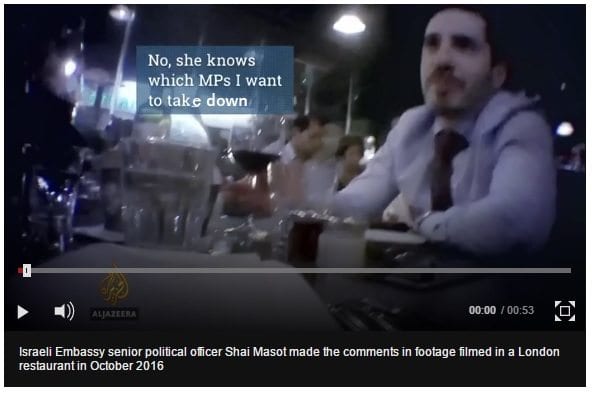
 A former Westminster official has resigned after footage emerged appearing to show her discuss “taking down” pro-Palestinian MPs.
A former Westminster official has resigned after footage emerged appearing to show her discuss “taking down” pro-Palestinian MPs.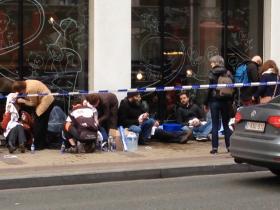
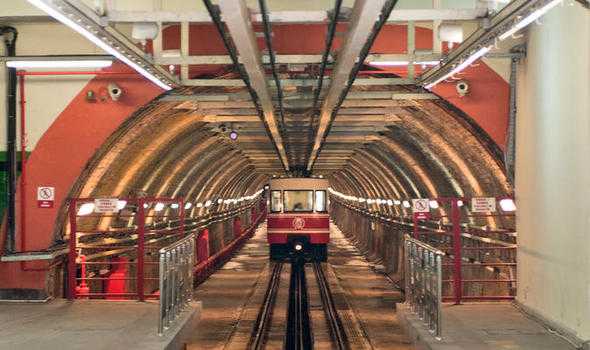

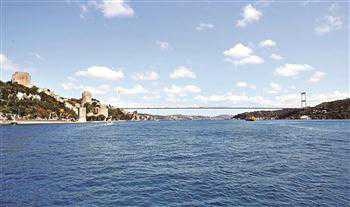
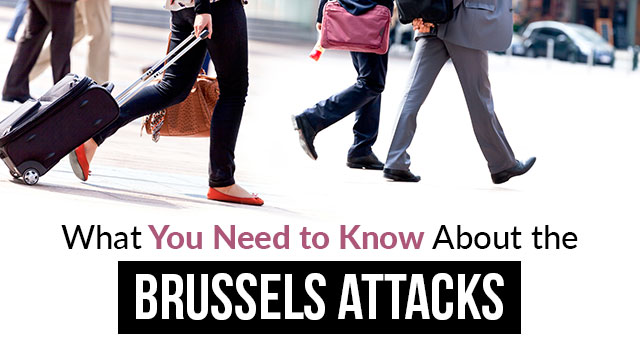 Belgium has come under harsh critique for their response to terrorism in the past. Molenbeek’s mayor was given a list of suspects in the neighborhood a month before the Paris attacks. She was criticized for not acting when two of these suspects were implicated in the Paris incident.
Belgium has come under harsh critique for their response to terrorism in the past. Molenbeek’s mayor was given a list of suspects in the neighborhood a month before the Paris attacks. She was criticized for not acting when two of these suspects were implicated in the Paris incident.